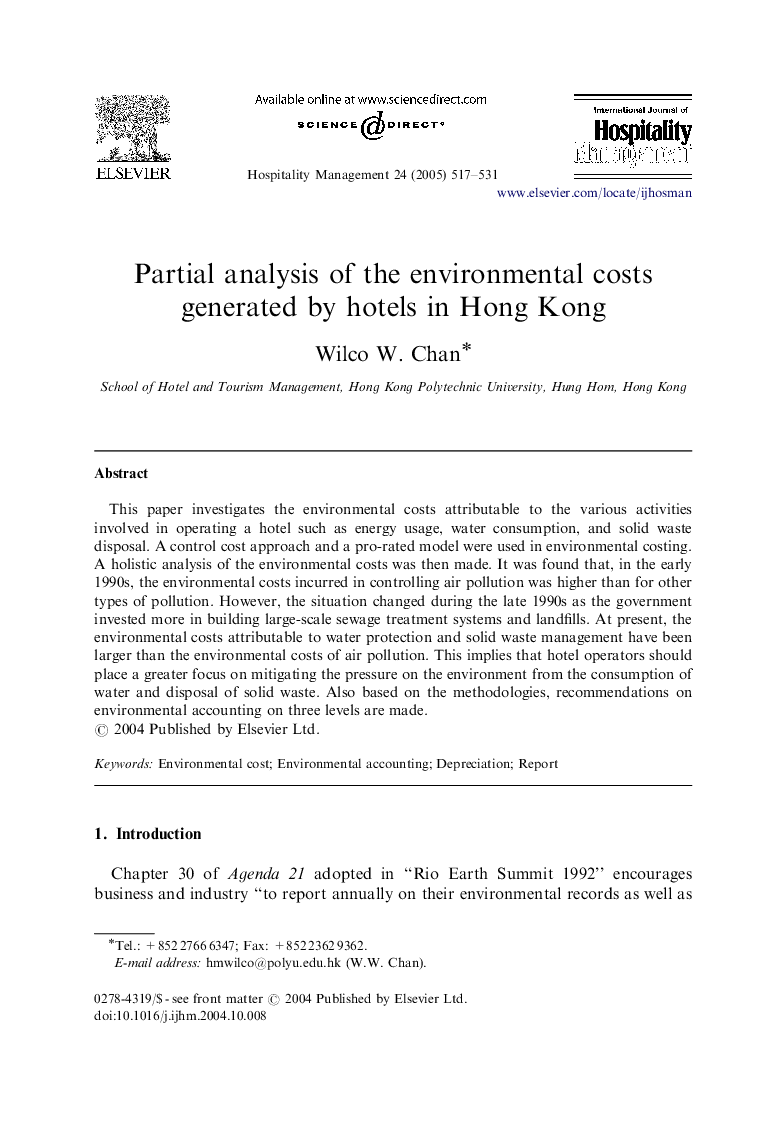| Article ID | Journal | Published Year | Pages | File Type |
|---|---|---|---|---|
| 9734295 | International Journal of Hospitality Management | 2005 | 15 Pages |
Abstract
This paper investigates the environmental costs attributable to the various activities involved in operating a hotel such as energy usage, water consumption, and solid waste disposal. A control cost approach and a pro-rated model were used in environmental costing. A holistic analysis of the environmental costs was then made. It was found that, in the early 1990s, the environmental costs incurred in controlling air pollution was higher than for other types of pollution. However, the situation changed during the late 1990s as the government invested more in building large-scale sewage treatment systems and landfills. At present, the environmental costs attributable to water protection and solid waste management have been larger than the environmental costs of air pollution. This implies that hotel operators should place a greater focus on mitigating the pressure on the environment from the consumption of water and disposal of solid waste. Also based on the methodologies, recommendations on environmental accounting on three levels are made.
Related Topics
Social Sciences and Humanities
Business, Management and Accounting
Strategy and Management
Authors
Wilco W. Chan,
